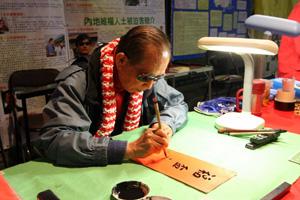Hong Kong—“Stay alert for communist spying tactics,” said Hong Kong rights leader Szeto Wah after reading a special report by the Hong Kong Epoch Times (HKET) on Feb. 13. The report narrates how Wang Lian, a former HKET staff member, was forced to be a spy for the Chinese communist regime against HKET.
Wang Lian holds a Ph.D. in Computer Science. He joined HKET as senior technical support in 2001, and was later employed by Macau University of Science and Technology as Assistant Professor in 2004, while he continued to work for HKET as a volunteer. On Sept. 12, 2006, the regime’s National Security officials kidnapped Wang on his trip to Zhuhai City, China.
Experiencing death threats and periods of intense brainwashing, Wang was forced to become a spy for the regime. His main mission was to destroy HKET from inside the media organization. Unwilling to betray his own organization, Wang was forced to give up his job with HKET in Jan. 2007 and fled from Hong Kong.
Szeto Wah Comments on Wang’s Story
As a former Hong Kong lawmaker and current Chairman of the Hong Kong Alliance in Support of Patriotic Democratic Movements of China (The Alliance), Szeto Wah said he was not surprised by what had happened to Wang, since similar situations have frequently happened in The Alliance and the Hong Kong Democratic Party.
Szeto said the Hong Kong Democratic Party had once established a five-person team, including him, to investigate such cases of espionage by the Chinese regime. After an eight-month investigation, a report published on Nov. 19, 2006 shows that the communist regime, attempting to destabilize the Hong Kong Democratic Party, had brought over several of its members. The investigation also shows that many party members had been contacted by the regime’s officials from Hong Kong, the Macao Affairs Office of the State Council, the United Front Department of the Central Committee, some provincial governmental organizations, and enterprises in Mainland China.
Szeto Wah said, “It is one of the Communist Party’s evil natures, espionage.”
“The communist regime is accustomed to disintegrating from inside organizations and political parties it finds unfavorable. They use two strategies. One is to plant a spy inside those organizations and the other is to buy people from the organizations to work for them. These kinds of espionage tactics have been frequently used during the past decades…. The regime is hostile to democratic organizations. It always attempts to sabotage them and absorb them.”
Szeto also commented, “It’s courageous and precious for Wang to stand out to expose the regime’s deed. Many people were forced to be the regime’s spies, but are too afraid to stand out, even if they know they are wrong.” He especially warns, “For some targeted people, they have to be especially alert. Don’t be used by the regime. If they fall into their trap, it’s hard to come out and they will be destroyed.”




